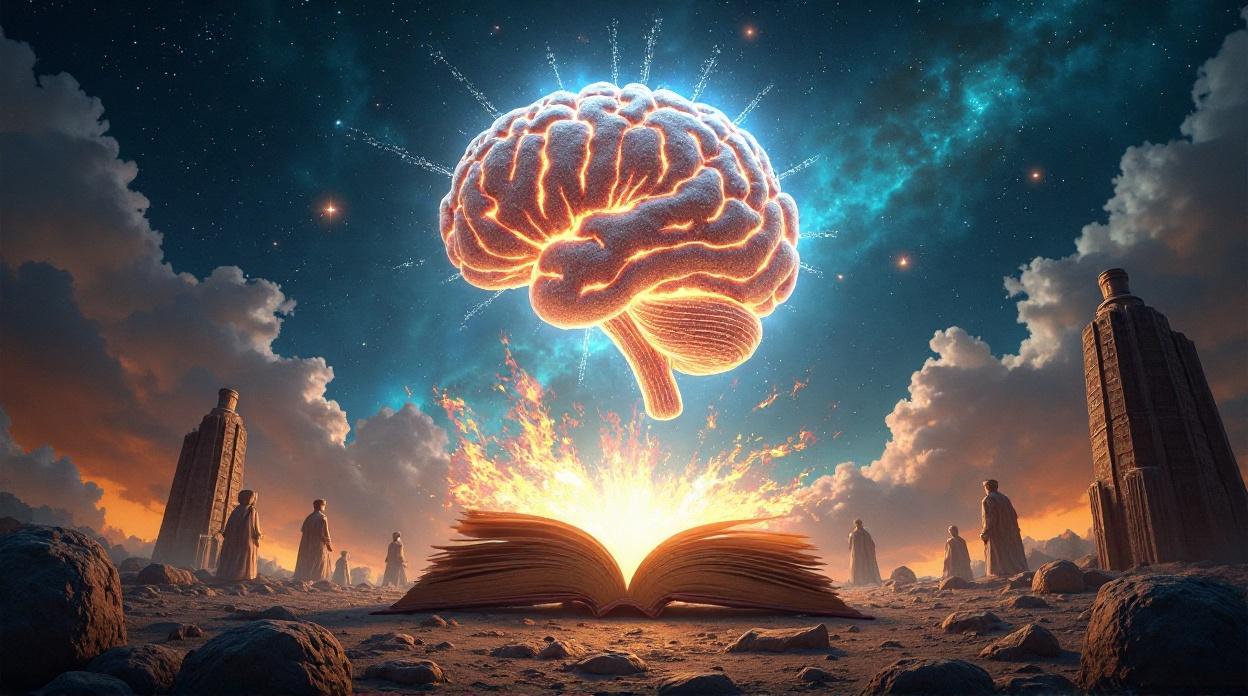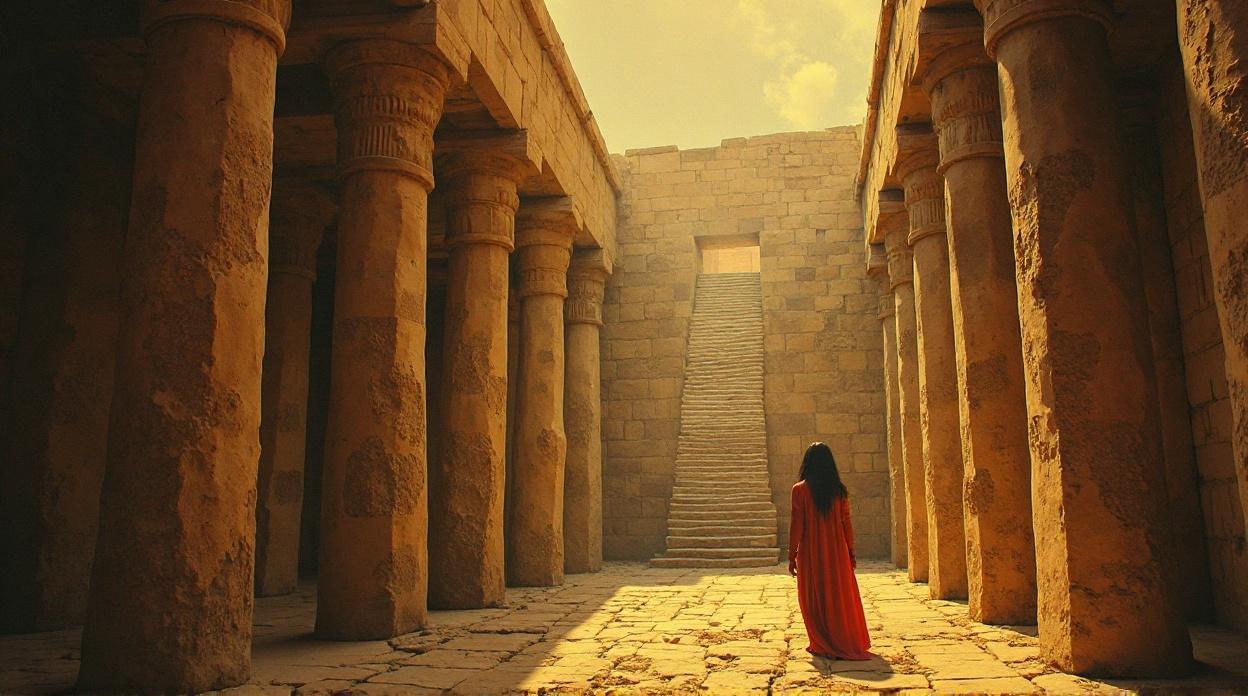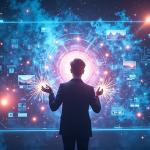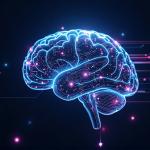We're on the cusp of a storytelling revolution, and it's got roots far deeper than you might imagine. Let's unpack how AI is shaping the legends of tomorrow, today.
I. Once Upon a Time... Technology's Ever-Evolving Role in Shaping Our Stories
From campfires to keyboards, the human impulse to tell stories has always been intertwined with the available technology. Consider language itself, a technology allowing abstract thought to be shared and refined across generations through oral traditions. The Iliad and the Odyssey weren't just stories; they were cultural operating systems, transmitted via meticulously crafted mnemonic devices.
Then came the prehistoric pixels of cave drawings – visual narratives etched onto stone, attempts to capture the hunt, the spirit world, and perhaps even the first attempts at world-building. The leap to cuneiform, papyrus, and parchment marked a profound shift: stories could outlive their tellers, leading to masterpieces like the Epic of Gilgamesh, a meditation on mortality and kingship that resonates even now.
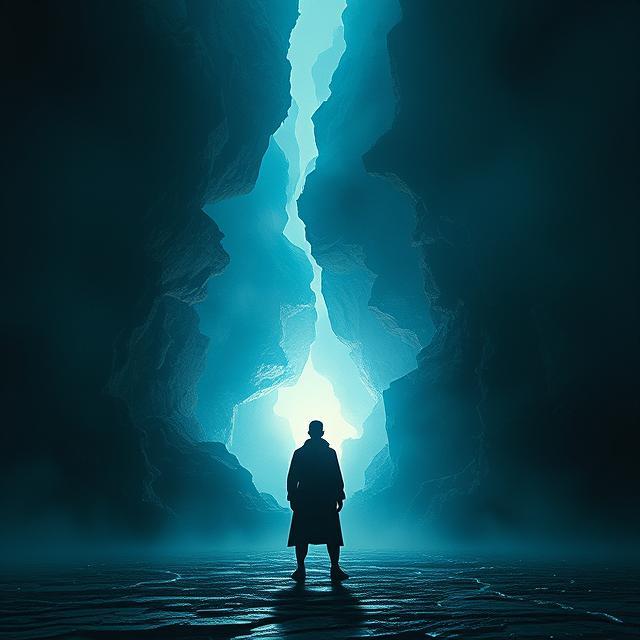
Gutenberg's printing press democratized knowledge, unleashing a flood of new narratives and giving rise to genres like the novel, which explored the interior lives of individuals in unprecedented detail. Later, photography, film, radio, and TV transformed storytelling into immersive visual and auditory experiences, shaping collective consciousness in powerful ways. Now, we inhabit the Digital Wild West, where the internet, social media, and user-generated content have placed a printing press and a movie studio in everyone's pocket.
But here's where it gets really interesting: Myths That Predicted Our AI Future? Mind Blown! It seems ancient civilizations were already dreaming up AI. Consider Talos, the giant bronze automaton of Crete, or the Golem, animated by kabbalistic magic. Hephaestus, the Greek god of blacksmiths, was said to have crafted golden maidens to serve as his intelligent assistants, and the Pushpaka Vimana of Hindu epics, a flying chariot of immense power. As scholar Adrienne Mayor argues, these weren't just flights of fancy, but early explorations of artificial life and its ethical implications. Our fascination, it seems, is ancient.
II. The AI Bard: How Today's Tech is Resurrecting Legends & Crafting New Ones
Now, AI is taking its place in this ever-evolving lineage. It's not just archiving stories; it's actively participating in their creation and transformation. Imagine AI as a super-powered literary analyst, capable of sifting through millennia of myths to identify recurring patterns, themes, and character archetypes. It can then generate fresh narratives, transplanting classic hero's journeys into post-apocalyptic wastelands or interweaving Norse gods with the rich tapestry of African folklore. Forget cable television, imagine Netflix, but make it mythic.
AI is also unearthing lost lore and building cultural bridges. It can reconstruct oral histories that were never written down, piecing together fragments of forgotten narratives. Moreover, it can create entirely new stories by blending figures and motifs from seemingly disparate traditions – Hindu deities interacting with Jewish folklore, Siberian shamanism informing tales of transhumanism.
Beyond the page, AI is enabling interactive and visual storytelling in unprecedented ways. Think choose-your-own-adventure mythology, where narratives adapt in real-time based on audience choices. Tools like DALL-E and MidJourney conjure stunning images of mythical creatures and epic scenes from text prompts, making the invisible visible.
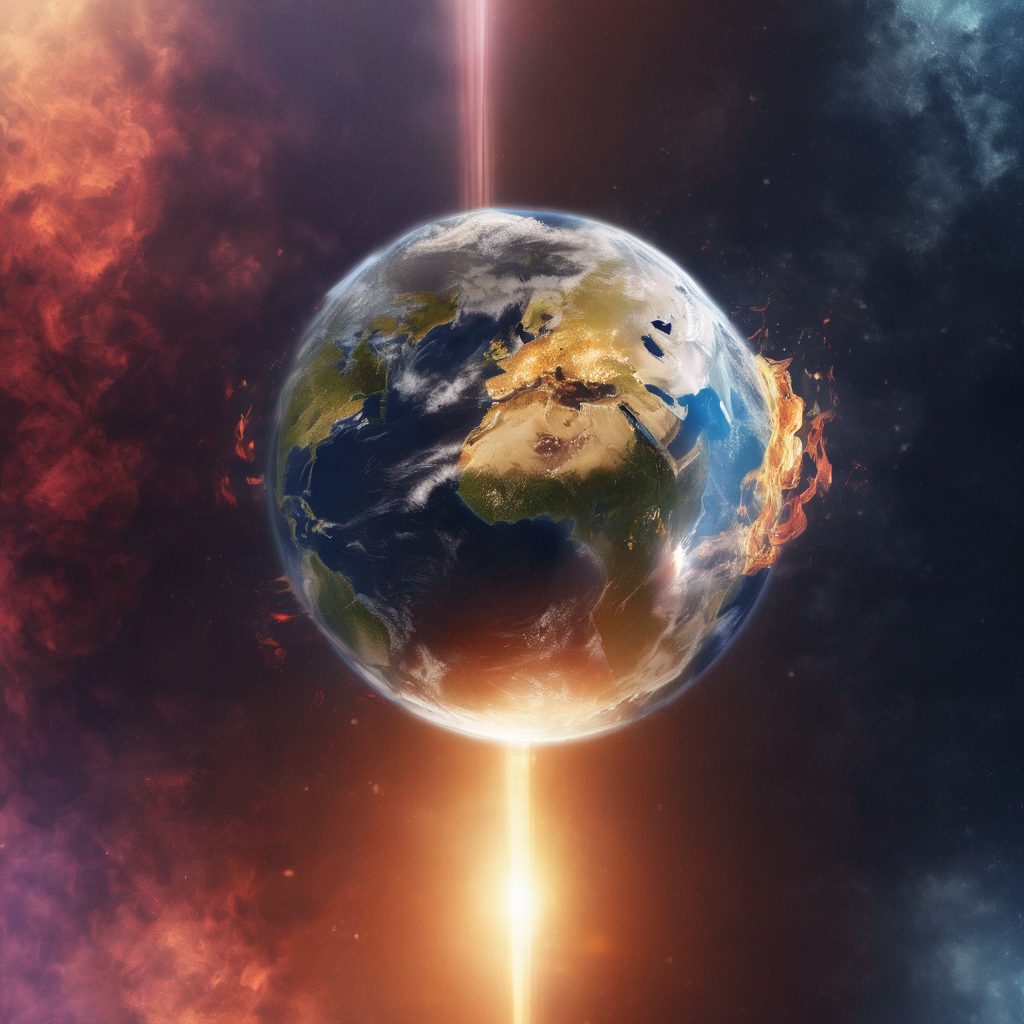
Perhaps the ultimate plot twist is AI becoming a modern myth itself! It's not just a tool; it's a character in our unfolding story. We're seeing the emergence of narratives about sentient algorithms, haunted chatbots, and benevolent machine gods, reflecting our hopes and anxieties about this powerful technology. Even more intriguing, AI models are developing their own internal logic and recurring elements, creating self-sustaining loops of myth-making.
III. Pandora's Box or Prometheus's Gift? Navigating the Controversies of AI Mythmaking
But this brave new world isn't without its shadows. Are we opening Pandora's Box or receiving Prometheus's Gift? One critical question is authenticity. Can AI truly capture cultural essence and nuance, or does it risk oversimplification and the perpetuation of generic stereotypes? There's a real fear that AI could perpetuate biases or misrepresent diverse cultures, especially when dealing with sensitive traditions.
Intellectual property and cultural appropriation loom large. The "mass scraping" debate raises concerns about whether AI companies should compensate creators for the vast amounts of creative work used to train their models. The specter of cultural appropriation arises when AI mimics traditional art or stories without proper context, credit, or consent from the originating cultures. Legal systems are scrambling to determine if an AI can even be considered an "author" or "inventor."
The "black box" problem adds another layer of complexity. AI's decision-making processes can be opaque, like Pandora's jar, revealing the output without showing how it was achieved. The ethical tightrope is stretched taut when AI is used to "reanimate" the dead through deepfakes of historical figures or deceased loved ones. How does this impact narrative integrity, respect for the departed, or even open doors for political manipulation?
Finally, there's the risk of a flood of low-quality, uninspired, or derivative AI-generated content. Human oversight becomes non-negotiable, essential for maintaining creative standards and cultural sensitivity.
IV. The Greek Chorus of the Digital Age: What the Experts Are Saying
What do the experts think of all this? Academics are using AI – such as Google DeepMind's Aeneas, which restores ancient texts – to analyze vast amounts of mythological data, uncover hidden patterns, and even reconstruct lost languages. "Computational folkloristics" is now a real field, employing AI to study storytelling networks at an "internet scale."
Authors and creators are divided. Sci-fi trailblazers like Neil Gaiman and Rick Riordan have long blended tech and myth, and now AI is offering new avenues for exploration. Many authors see AI as a powerful creative assistant – useful for brainstorming, overcoming writer's block, or drafting initial ideas.
AI developers often look to ancient myths like Prometheus and Pandora for ethical lessons about wielding "god-like" power. They're actively working to debunk common AI myths, emphasizing responsible development, ethical guidelines, and continuous monitoring to ensure AI benefits humanity.
Cultural critics view AI as a modern myth that reflects our deepest hopes and anxieties about technology, intelligence, and what it means to be human. They challenge the "lone pioneer" narrative of tech, highlighting that innovation is a collective endeavor, not the product of solitary genius. They also emphasize that while AI is powerful, it still lacks the emotional depth and lived experience that humans bring to true storytelling.
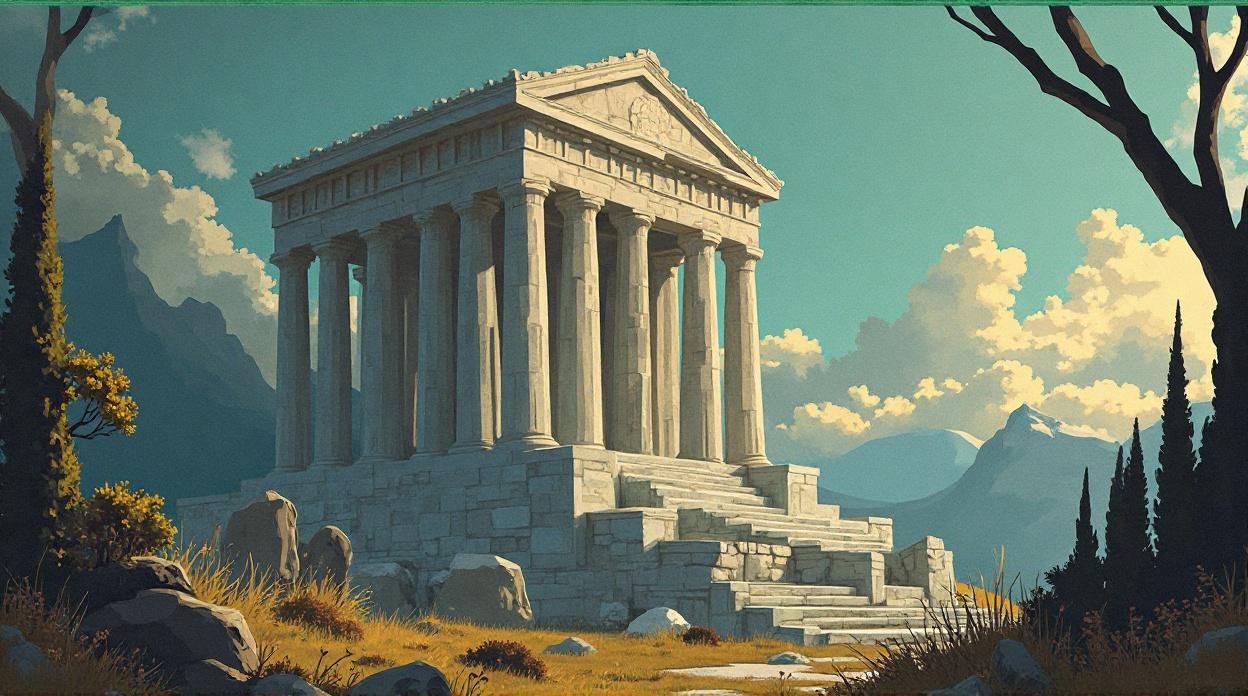
V. The Next Chapter: AI's Epic Journey into the Future of Storytelling
What does the future hold? Expect smarter, more intuitive AI companions that anticipate your storytelling needs and offer personalized narratives that adapt in real-time to your preferences. VR and AR will transport you directly into mythological realms, allowing you to interact with deities and creatures as never before. Museums and archives will use AI to create dynamic, living histories.
We'll likely see the rise of hybrid mythology, where AI-generated folklore increasingly blends with human traditions, leading to new, shared, and evolving mythologies. Envision self-sustaining loops of AI myth-making, developing their own internal logic.
AI tools will continue to lower technical barriers, democratizing content creation and amplifying diverse voices globally. The future isn't AI replacing human storytellers, but a powerful collaboration: humans providing intuition, emotion, and purpose; AI offering data analysis, pattern recognition, and rapid generation.
Crucially, the ongoing quest for ethical AI will become even more critical. As AI becomes more deeply integrated into our lives, we'll need robust legislation and ethical guardrails to navigate the complex challenges it presents.
Conclusion:
From ancient automatons to modern algorithms, the intertwining of AI and mythology is a testament to humanity's timeless fascination with creation and narrative. AI isn't just rewriting old legends; it's becoming an integral part of how new ones are formed and shared. What new myths will we co-create with our silicon bards, and how will these stories help us understand ourselves in this brave new digital age? The epic tale continues...
Leave a comment
Your email address will not be published. Required fields are marked *


